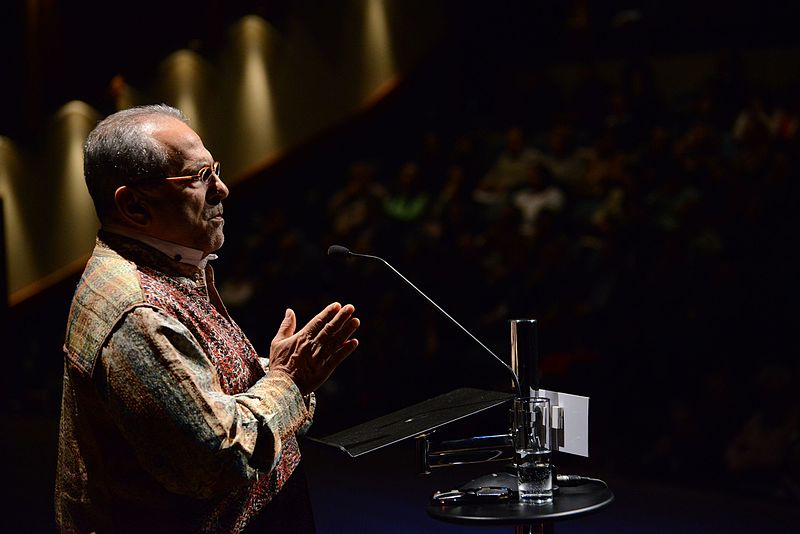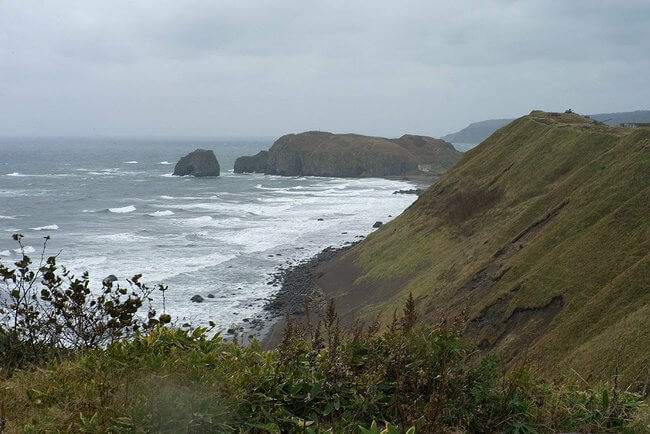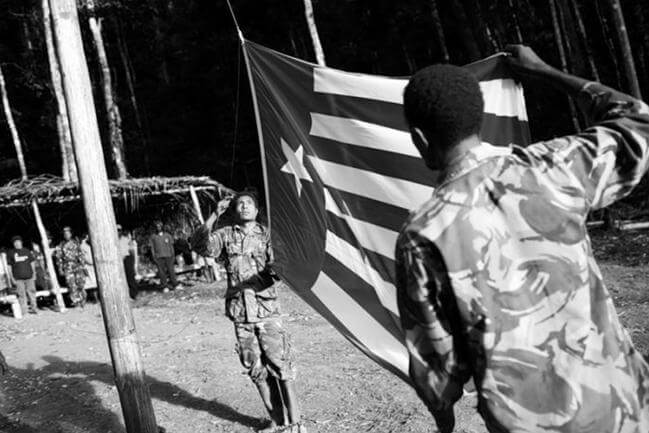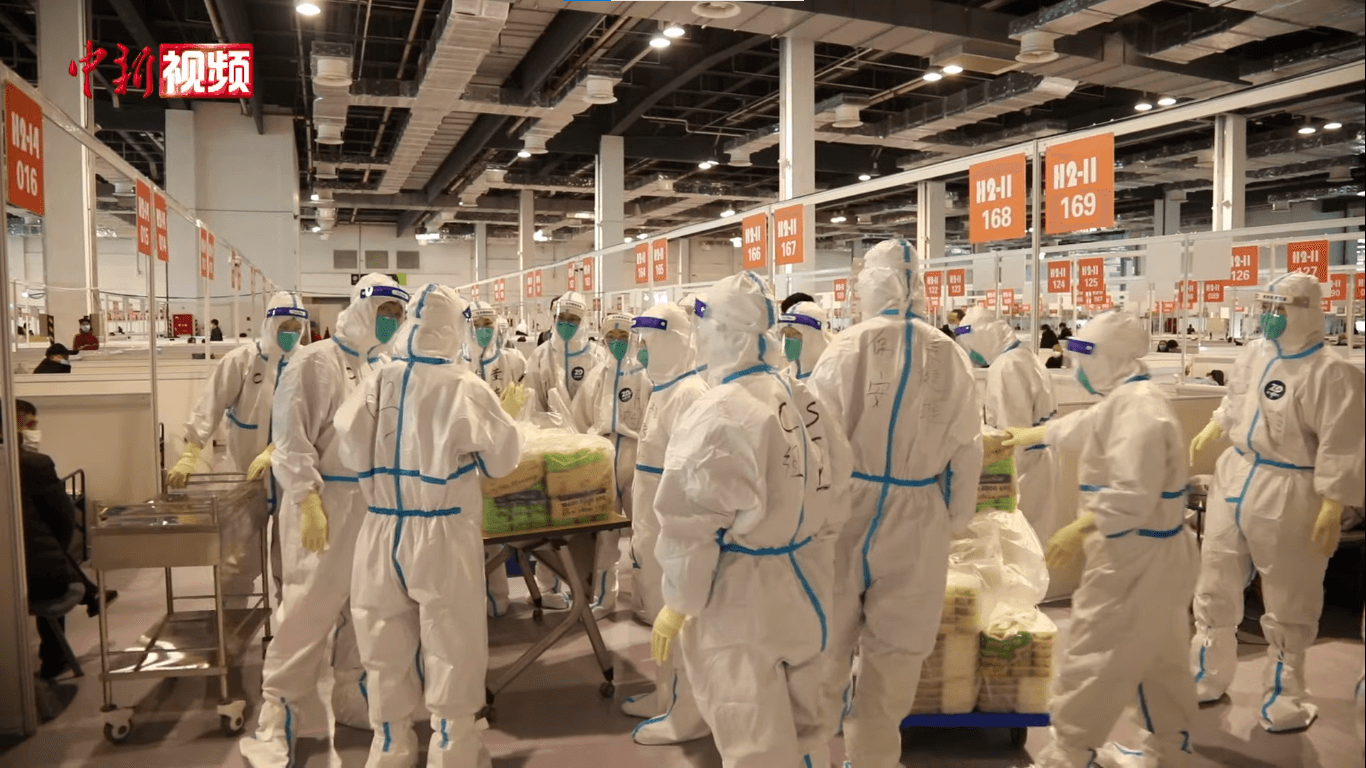West Papua National Liberation Army raises the Free Papua movement flag.
Souce: Tpnpb via
Wikimedia CommonsTwo government troops were killed with eight others injured by separatist rebels in Papua province during
a weekend attack, according to Indonesian authorities. Separatist rebels also claim responsibility for a deadly attack killing
eight telecommunications workers in Puncak in early March. The attackers are reported to be the West Papua National Liberation Army (TPNPB in Indonesian-language acronym), which is the military wing of the Free Papua Organization (OPM).
With 141 degrees east longitude as the dividing line, the Western half of the New Guinea island are the Indonesian provinces of Papua and West Papua, where territory has been fiercely fought over between multiple actors. Although a
referendum was held in 1969 determining that the Papua area would remain in Indonesia, its legitimacy has been disputed by independence activists, as the referendum involved only about 1,000 people. Since then, separatist rebels have waged insurgencies against Indonesian forces.
Conflicts became severe since an escalation of violence began in December 2018, when separatist fighters killed 16 labourers working on the Trans-Papua highway. Protests continue over Papua as local activists believe Jakarta tends to strengthen its grip over this resource-rich region. In previous statements, the group demanded the Indonesian government
halt the gold mine plan in Wabu Block as well as close the giant Grasberg mine operated by the U.S.
Indonesia's government formally designated Papuan separatists as ‘
terrorists’ in 2021. The long-standing unrest has resulted in deaths on both sides, dozens of arrests, and the mass displacement of Papuan villagers. Separatist rebels have sought international support while accusing the country's security forces of human rights
abuses in counter-insurgency operations. The United Nations was asked to intervene with human rights experts, issuing a statement decrying the Indonesian state’s abuses against indigenous residents in the region, which the Indonesian side has denied.




